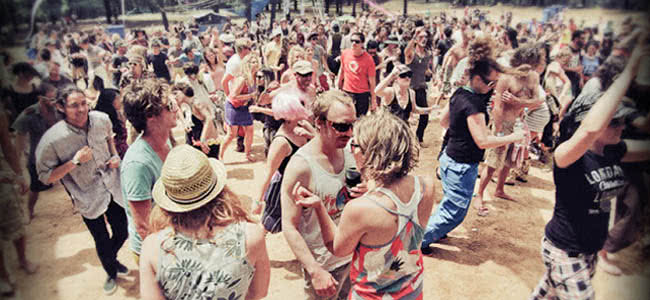Summer is almost upon us and festival season is well and truly in full swing bringing with it some of the finest musical talent from around the globe.
But as thousands of ticket holders around the country begin to party under the sun, with it comes the annual crackdown on drug use that police use annually for high profile busts.
Over the weekend, police ran an anti-drug operation at fledging electronic music festival Strawberry Fields, held annually near Deniliquin in New South Wales, close to the Victorian border.
According to the NSW Police, a drug detection dog was used throughout the event with police seizing a range of prohibited drugs including amphetamines, cannabis, ecstasy, LSD, methylamphetamine and magic mushrooms.
Over the course of the weekend officers conducted 114 person searches, 78 vehicle searches and 337 random breath tests while also issuing 12 traffic infringement notices.
A total of 55 people were found in possession of prohibited drugs, resulting in 41 charges being laid and 14 people being issued cannabis caution notices. A further 21 people were charged with drug supply offences while 10 people were charged after being found in possession of equipment to administer prohibited drugs.
Alarmingly, one person was also charged after allegedly being found in possession of ammunition while another was issued a criminal infringement notice for unspecified “offensive behaviour”.
Earlier this year NSW Police said they were disappointed after conducting a huge bust of over 400 people at the annual Splendour In The Grass for drug related offences, including some of the crew working at the festival, and Stereosonic 2011 in Melbourne saw over 200 arrested in the biggest bust in Victorian festival history.
“Over 400 people were found in possession of prohibited drugs,” said Superintendent Stuart Wilkins after the Splendour bust. “That is simply unacceptable. This culture of drug-taking at music events needs to stop.”
“It’s also about the drugs we didn’t seize,” he added. “People who were clearly under the influence of drugs, the medical tent being absolutely flat out, police being called to assist with people who were suffering the effects of drugs and being violent or being unable to care for themselves.”
The latest dug busts also come off the back of increased use of sniffer dogs by NSW Police outside of music festivals, including a recent sweep of a Tex Perkins concert in Sydney at The Factory Theatre that saw one individual charged with possession.
The police presence at The Factory Theatre is part of the introduction of a raft of new measures to crackdown on licensed venues in Sydney in an attempt to curb alcohol related-violence, including more police patrols with sniffer dogs that will be allowed to search members of the public without requiring a warrant.
Police believe the use of sniffer dogs at festivals and music venues are a valuable safety resource to help prevent punters from causing damage to themselves or to others. But the use of sniffer dogs and police patrols have been criticised by researchers and privacy campaigners concerned over their use.
According to the ABC, a study conducted in Australia in 2009 found that “regular ecstasy users do not see detection dogs as an obstacle to their drug use”, while another study by a Melbourne-based researcher found that patrons at music festivals have adapted their behaviour to avoid sniffer dogs such as “storing their drugs internally in the canisters wrapped in condoms”.
Others have turned away from illicit drugs altogether, in favour of prescription medication or ‘legal highs’ – designer drugs that mimic already illicit drugs but bypass otherwise strict controlled substance laws because of their chemical makeup.
In most cases, legal highs are quickly added to the controlled substance list, but continue to be a problem for sniffer dogs to detect. Some have been found to have significant side effects, and at least one case has been confirmed where a festival punter died after consuming a legal high.
In June, a teenager collapses and died, while two others were hospitalised at RockNess Festival in Scotland after consuming the legal high Benzo Fury which is said to closely mimic the effects of MDMA which is often used in the production of ecstasy tablets.
“People may think that ‘legal highs’ are safe, because they are not classed as a controlled drug,” said Supt Stevie Mackay, the police event commander at RockNess. “But they are extremely dangerous.”
The death followed two other tragedies in Australia at the beginning of the year. Firstly a man who reportedly overdosed on drugs at popular rave festival Rainbow Serpent, and a middle-aged woman collapsed and was unable to be revived at Byron Bay’s Bluesfest. The woman’s death was not related to the consumption of substances, illegal or otherwise.
But despite serious concerns about the effectiveness of sniffer dogs at music festivals, police forces around the country have remained defiant and have promised to continue their use at future music events.
“These drugs are dangerous, they are manufactured by criminals with no regard for peoples’ safety,” a police spokesperson said after the blitz at the beginning of the year. “We will continue to police these types of events in an attempt to limit the impact these drugs have on society,” they said.

































